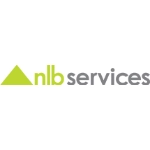© 2026 Next Level Business Services Inc. All Rights Reserved.
Difference Between Company Payroll and Third-party Payroll
By NLB Services
Payroll management is important in any organization’s administration and finance lineup. Employees expect to be compensated accurately and on time as they work for an organization with full effort. If, for any reason, an employee does not receive the salary on time, it leads to friction, demoralization of the employee, and loss of reputation for the company.
An efficient payroll system eliminates the difficulty of paying employees on time and automates steps such as salary credit, leave availed checks, and actual salary calculation.
Payroll management is done in two ways: in-house where the employee’s company manages the payroll and third-party (outsourced). While the core tasks are similar, there are numerous distinctions between managing payroll in-house versus outsourcing to an external provider. Knowing these differences enables organizations to determine the ideal approach based on their needs and priorities. In this blog, we will understand the difference between company payroll vs third-party payroll and which is best suited for your business.
Understanding Company Payroll
When a business manages payroll in-house by utilizing its own HR and accounting division, this is called company payroll. Under company payroll, the organization manages end-to-end payroll in-house, it involves calculating wages and salaries, withholding taxes, distributing payments, and generating pay slips for all employees.
Company Payroll or in-house payroll management has some major advantages that you must know:
Full control and customization
One of the major advantages of company payroll is greater supervision and customization of the payroll process. As all the tasks of payroll are handled internally, this enables businesses to personalize and optimize it as per their requirement. It allows them to decide payroll frequencies, payroll models, and deductions.
Immediate responses to payroll issues
Having payroll in-house gives you the advantage of continuously monitoring the process and resolving the issues on an immediate basis. In-house payroll facilitates real-time analytics and reporting, helping in better financial planning and swift decision-making.
Privacy and data security
Another great advantage of having payroll management in-house is enhanced privacy and data security. Sensitive information of employees, such as their address, contact number, pay scale, and bank details are stored internally, reducing the risk of data breach.
Despite the advantages of in-house payroll management, there are some disadvantages too that businesses should consider:
Resource Intensive
In-house payroll management requires significant resources and time. You need to hire and train staff, maintain accounts, records, and software, and stay updated with recent regulations. The bigger the workforce, the more resource-intensive it becomes to manage company payroll.
Requires dedicated in-house expertise
To manage in-house payroll, you will need a dedicated resource adept at taxes and payroll which may increase costs. Also, there are cases where in-house payroll staff lack the specialized knowledge required for efficient payroll management, leading to errors and inefficiencies.
Compliance Challenges
Payroll teams have to stay up to date with constantly changing tax laws, labor regulations, and compliance updates, which can be daunting and need time and resources.
Understanding Third-Party Payroll
Third-party payroll is the practice of outsourcing payroll management to an external service provider instead of doing it internally. Under the third-party payroll arrangement, organizations partner with a payroll processing company that takes on the responsibility of calculating paychecks, withholding taxes, filing returns, and distributing payments to employees on the company’s behalf.
This enables businesses to offload the administrative burden associated with payroll to experts and professionals, minimizing delays and chances of errors and enabling them to focus better on core business operations.
Adopting third-party payroll for your company can be beneficial for you as it brings advantages as follows:
Expertise in handling complex payroll regulations
Third-party payroll helps organizations adhere to all complex payroll tax laws, regulations, and filing requirements as third-party payroll providers stay updated on the most recent regulations across the line. This ensures that business owners are relaxed as all payroll taxes are appropriately deducted. The third-party payroll providers are accountable for any tax penalties owing to miscalculations or missed deadlines.
Payroll Scalability and flexibility, especially for growing businesses
Third-party payroll providers offer scalability and flexibility. They can easily scale their services to accommodate business growth quicker and also scale down in times of seasonal fluctuations. This takes away the burden from organizations to plan or deploy additional payroll resources to manage future demand.
Cost-effective for smaller teams
Third-party payroll is usually more cost-effective than managing payroll in-house. As per Stamod, outsourcing payroll can save businesses up to 30% on their overall operating costs. This is also one of the crucial incentives for outsourcing payroll. As they already have the infrastructure and technology for payroll automation in place, it is easier for them to manage the workforce instead of organizations first hiring manpower to manage payroll and investing in infrastructure and technology too.
Saves Time
Payroll management can be a daunting task, especially when you have a large workforce. Using a third-party payroll service saves the time spent on payroll processing, benefit deductions, payroll tax filing, etc., making for more strategic tasks.
Disadvantages
Less Control Over Payroll Processes
When payroll services are outsourced, you may have less control over the process than in-house resources. While they may follow the best practices, it is not necessary to align with yours. Moreover, you could have very little control over spontaneous changes and how your data is managed.
Data Security Concerns
While managing payroll, payroll outsourcing companies get access to and handle your employees’ sensitive information such as bank details, which may increase your security risks. Outsourcing payroll increases the chances of a possible breach and data compromise. You need to be vigilant while finalizing a reliable third-party payroll service provider.
Potential Communication Delays
Since a different organization manages payroll under payroll outsourcing, there can be delays or misunderstandings in communication and messaging between the organizations and the payroll provider.
Key Differences Between Company Payroll and Third-Party Payroll
| Factors | Company Payroll | Third-Party Payroll |
|---|---|---|
| Control and Customization | One of the major differences between company payroll and third-party payroll. Under company payroll, full control of the process is retained by the organization, which gives them the advantage to customize and configure the payroll process as per the need. They have a greater degree of customization on payroll software, schedules, workflows, deductions, etc | Whereas in third-party payroll adapting the standards and methodologies of that organization. It gives you less degree of flexibility and customization over company payroll. |
| Cost Considerations | Another major difference between company payroll and third-party payroll is cost. Once the fixed costs of infra, tech, and staff are taken care of, company payroll can be more cost-effective for large organizations, benefiting from economies of scale. | Third-party payroll is often suitable for small to medium-sized businesses as it takes away the need for setting up in-house payroll infrastructure. |
| Compliance and Legal Risks | Managing payroll is complex, as it has multiple regulations at different levels. For compliant operations, payroll staff need to stay updated with changing laws and filings, this needs specialized expertise too. When managed in-house, this adds to costs and requires constant monitoring to avoid any errors. Also, the business bears full liability for any non-compliance or mistakes. | However, when outsourced, third-party payroll providers take on this liability and offer more protection. Meeting compliance is essential for any organization.
Reputable payroll providers like NLB Services have large compliance teams who are experts in regulations across jurisdictions. This provides companies confidence that all filings and payments will be handled properly. |
| Focus on Core Operations | For a majority of organizations, payroll, though crucial, is not a primary revenue-making activity. They still have to pay attention and invest resources in core operations to ensure revenue. In company payroll, a major chunk of your organization’s resources and manpower will be spent on payroll management which may impact your focus on core operations. | While in third-party payroll, organizations can reallocate resources spent on payroll administration toward more strategic initiatives that impact growth and competitiveness.
This saves time and offers more opportunities for organizations to focus on customer experience, sales, and strategy. Management can focus on the bigger picture which enables greater success. |
Which is Right for Your Business?
Choosing between in-house payroll and third-party payroll services is one of the crucial decisions for any business, regardless of the size.
Factors to consider when choosing between company and third-party payroll:
Business size
Outsourcing payroll can be highly beneficial for small and medium-sized businesses. It lessens the administrative burden and allows the businesses to focus on core operations. Larger companies may prefer in-house payroll due to the customization, control, and flexibility it offers. Large companies are often capable of deploying the resources to manage payroll complexities and hiring experts in-house.
Complexity
When the payroll requirements are complex and involve multiple pay rates, international employees, and extensive benefits packages, in-house payroll will offer more flexibility. In-house payroll allows tailored solutions that can handle these complexities better. For a straightforward payroll system, third-party payroll makes a lot of sense.
Budget considerations
In-house payroll requires dedicated payroll staff and experts that add to the overall costs and can be expensive. It involves costs such as training, software, and ongoing management. However, it gives more control over payroll processes and offers greater data security. Outsourcing payroll is cost-effective, especially for small and medium-sized enterprises. The payroll cost structure is based on service provided and per person, gives more predictability, and takes away the administrative burden of maintaining an in-house team.
Conclusion
To conclude, company payroll or third-party payroll services come with their own set of pros and cons, but based on your business size and needs, you can finalize which one to select for payroll management.
With in-house payroll, you get more control and customization, making it ideal for larger firms with complex payroll needs. But it can be costly as it also requires dedicated staff, software, and management.
Third-party payroll services, on the other hand, can be more cost-effective and reduce administrative burdens mainly for small to medium-sized businesses. They also have experts in compliance and data security. However, you may encounter less flexibility which is needed for more complex payroll systems.
The decision should be based on a thorough evaluation of your business’s specific needs. Factors such as the size of your business, the complexity of your payroll, and your budget must be considered. By carefully evaluating the pros and cons and these factors, you can choose the payroll solution that best aligns with your business goals and operational requirements. Read our other blogs here.
Talent Solutions








